To view the replay, please click:
English Channel: http://live2.yilingcloud.com/meetingvideo/video/14869
Chinese Channel: http://live2.yilingcloud.com/meetingvideo/video/14870
2023 China-US Anti-Cancer Summit was successfully held virtually on December 21st, drawing 16.38 million people from China, the United States, Canada, Argentina, Brazil, Mexico, the United Kingdom, Turkey, Japan, Philippines, India, Afghanistan, and other countries.
This highly anticipated event, meticulously organized by China Anti-Cancer Association (CACA) and US-China Anti-Cancer Association (USCACA) as well as eChinahealth, aimed to foster collaboration and exchange the latest advancements in cancer research and treatment between China and USA.
Prof. Li Yan, the adept Managing Director of USCACA, took on the role of moderator and skillfully guided participants and the audience.
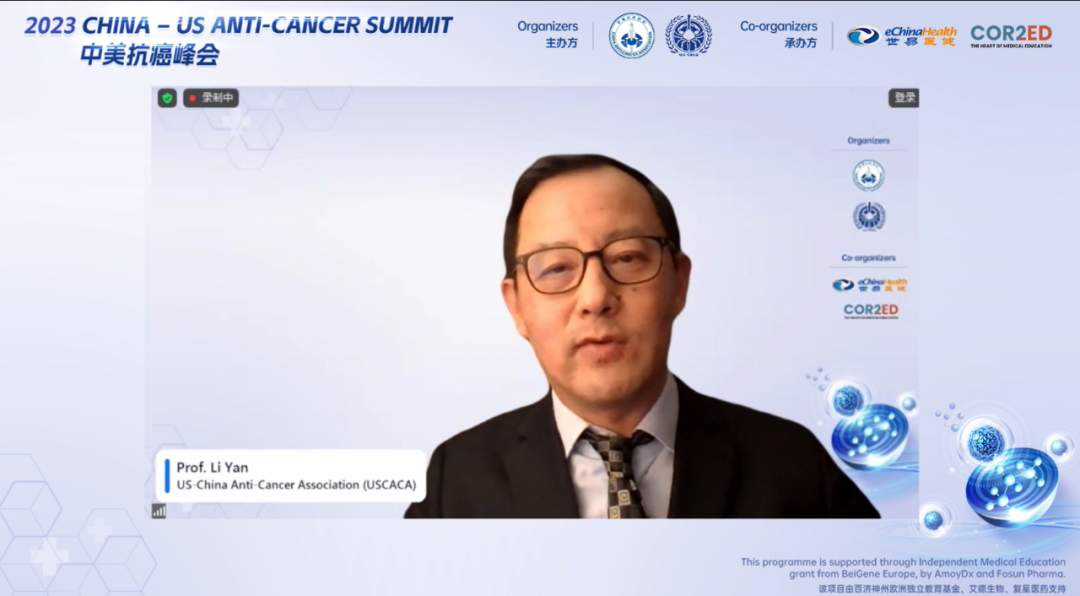
The summit commenced with an opening remark delivered by Prof. Ying Wang, Vice President of CACA. Prof. Wang expressed sincere gratitude to all participants for their unwavering dedication to combating cancer.
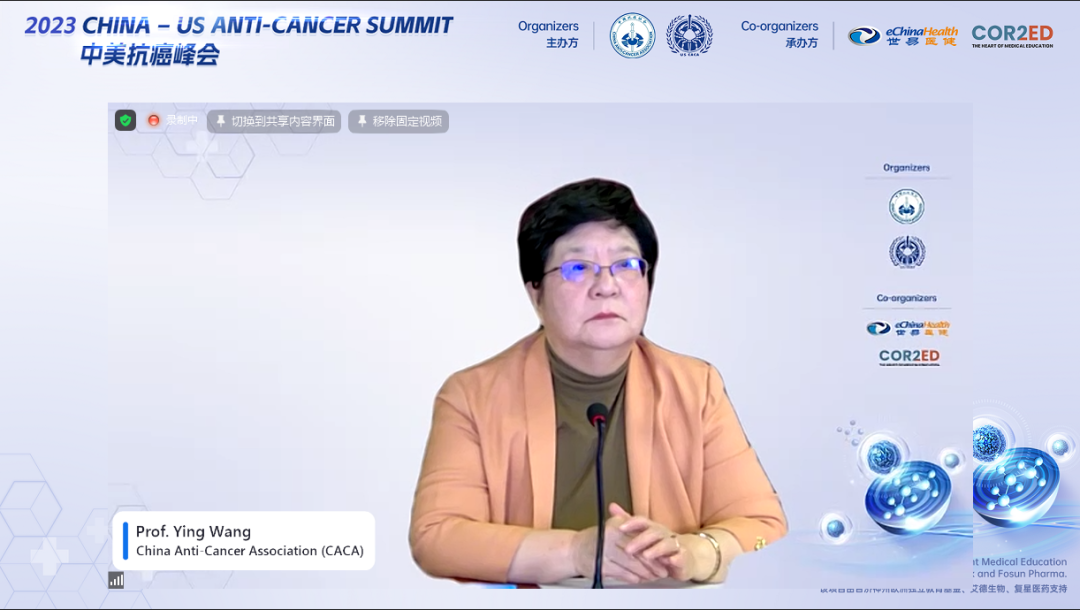
The first keynote speech, titled "Development of Holistic Integrative Management of Cancer in China," was presented by Prof. Daiming Fan, President of CACA and Honorary President of the World Federation of Integrative Health Societies. Prof. Fan illuminated the remarkable progress achieved in China concerning a comprehensive approach to holistic integrative management of cancer. “As we all know, one cannot completely copy the guidelines from other countries”, Prof. Fan said. By introducing the CACA Guidelines for Holistic Integrative Management of Cancer, he emphasized the significance of guidelines with Chinese characteristic and advocate the concept of holistic integrative medicine. Prof. Fan expressed that through focusing on multi-disciplinary treatment (MDT) to holistic integrative management (HIM), we can provide a multi-disciplinary treatment framework for cancer patients. His keynote speech sparked insightful discussions on Holistic medicine.
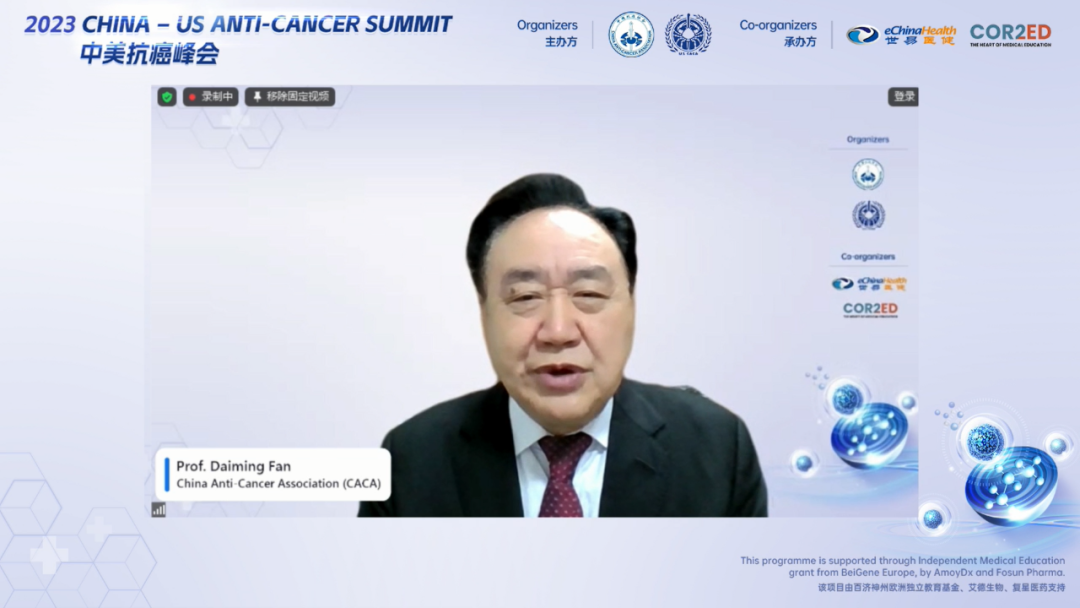
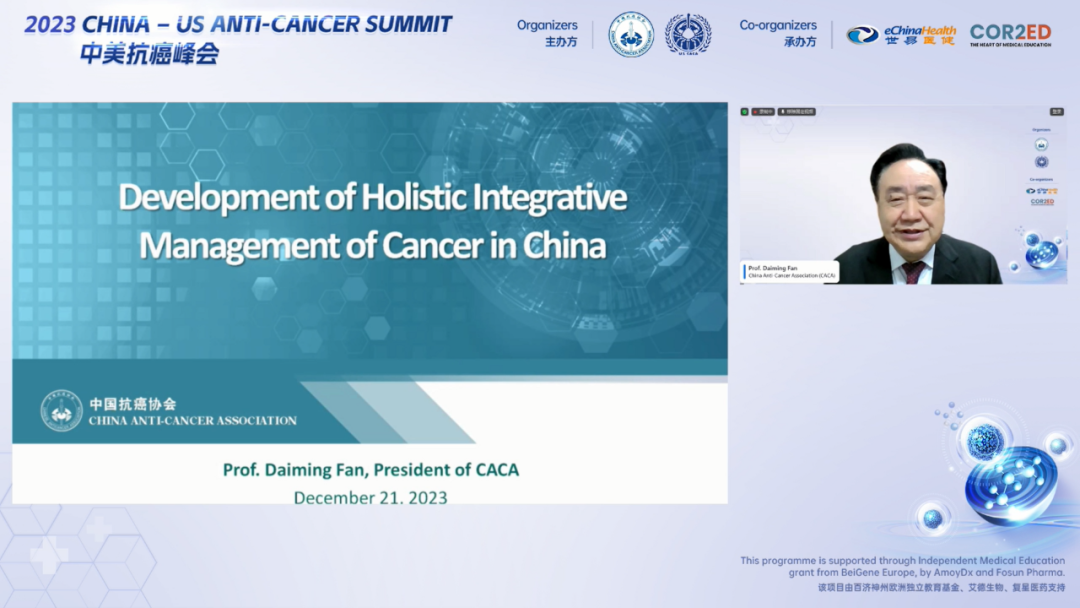
Prof. Philip Greenberg, President of The American Association for Cancer Research (AACR) and Director of Fred Hutchinson Cancer Research Center, took center stage to deliver the second keynote speech on "Cancer Research Progress in the US." Prof. Greenberg shed light on the latest breakthroughs and ongoing research initiatives in the United States, particularly the milestone achieved in expediting FDA approvals for new drugs in 2022-2023. Prof. Greenberg believed that we are entering a new era of comprehensive cancer care, where innovative technologies such as gene therapy and nanotechnology play a crucial role in cancer treatment.
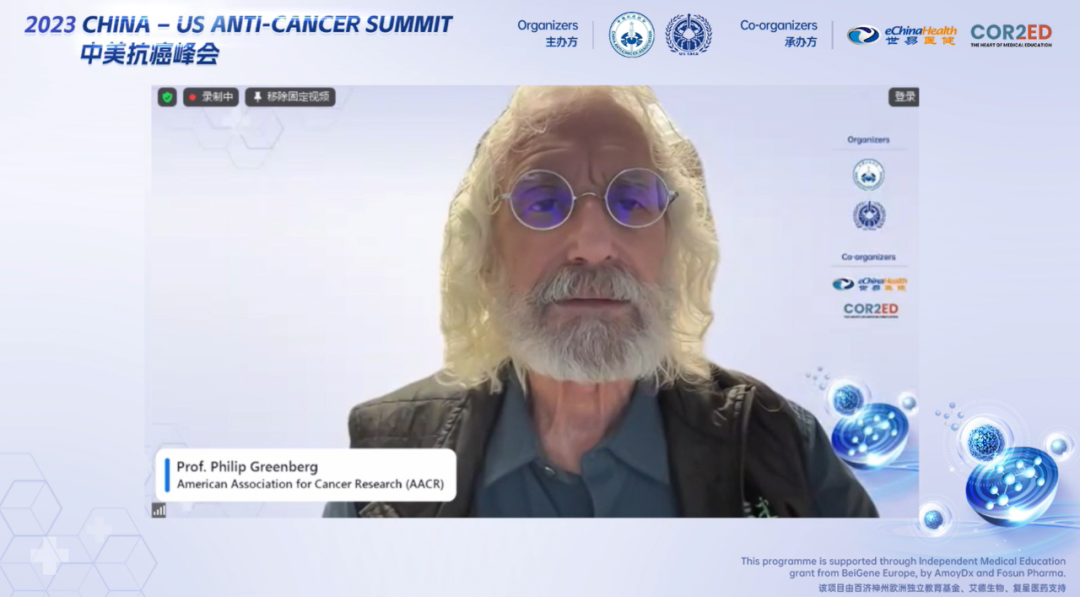
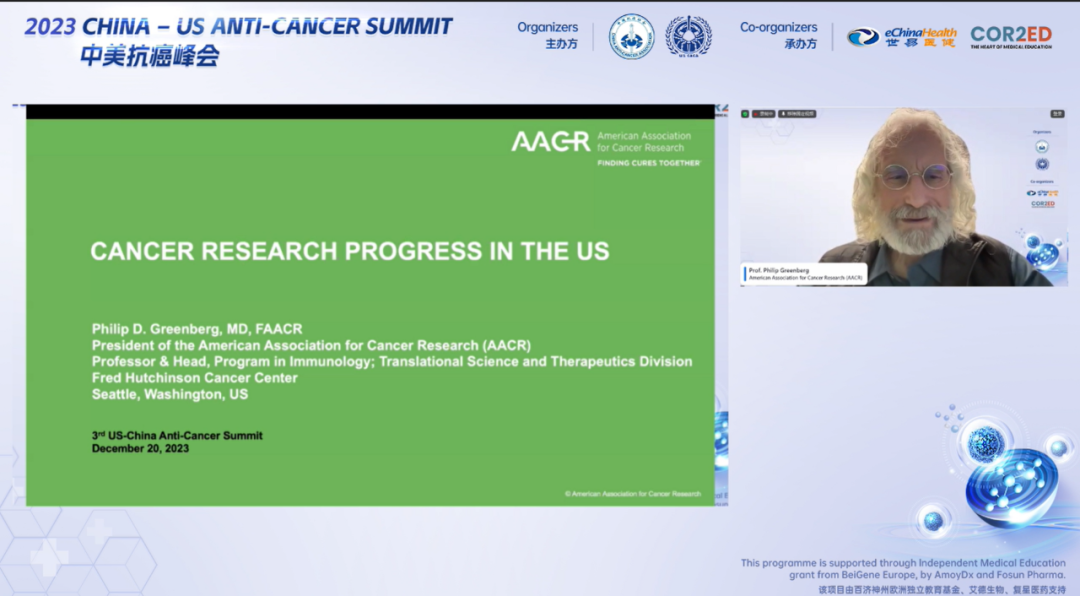
Prof. Lynn M. Schuchter, President of the American Society of Clinical Oncology (ASCO) and Chief of the Abramson Cancer Center at the University of Pennsylvania, addressed the audience on "Innovations in Oncology: Role of ASCO in Improving Cancer Care." Prof. Schuchter emphasized the paramount importance of innovation and collaboration in advancing cancer care. She highlighted ASCO's relentless efforts in promoting groundbreaking research and enhancing clinical practice. Besides, by discussing the innovative treatment methods that have been developed to fight cancer and the new challenges they pose, she emphasized the importance of finding ways to minimize the negative impact of these new treatments on patients and healthcare systems. She also highlighted the immense potential of artificial intelligence in advancing cancer care.
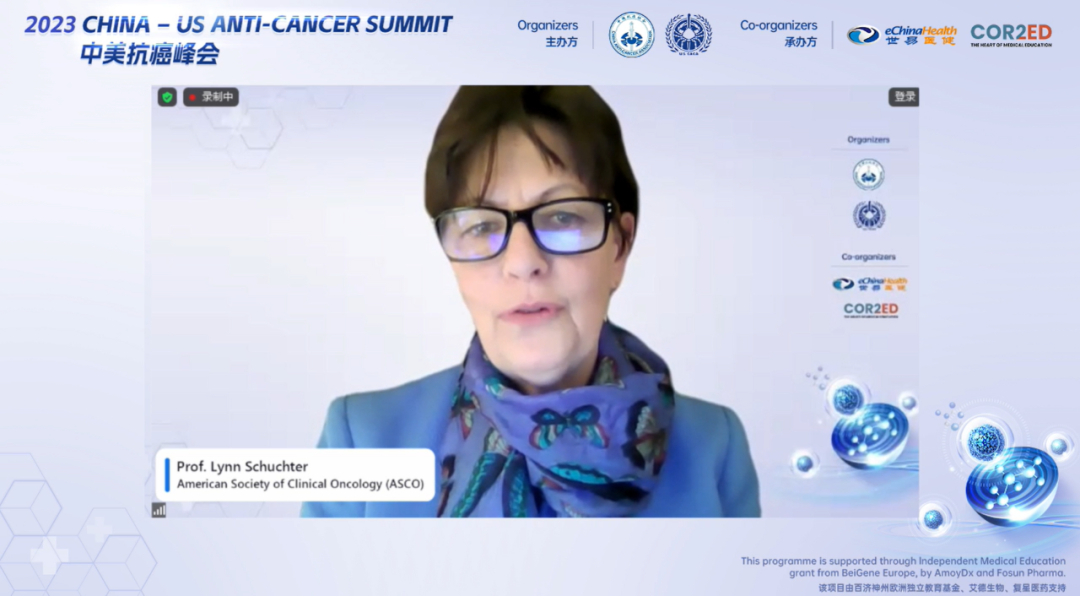
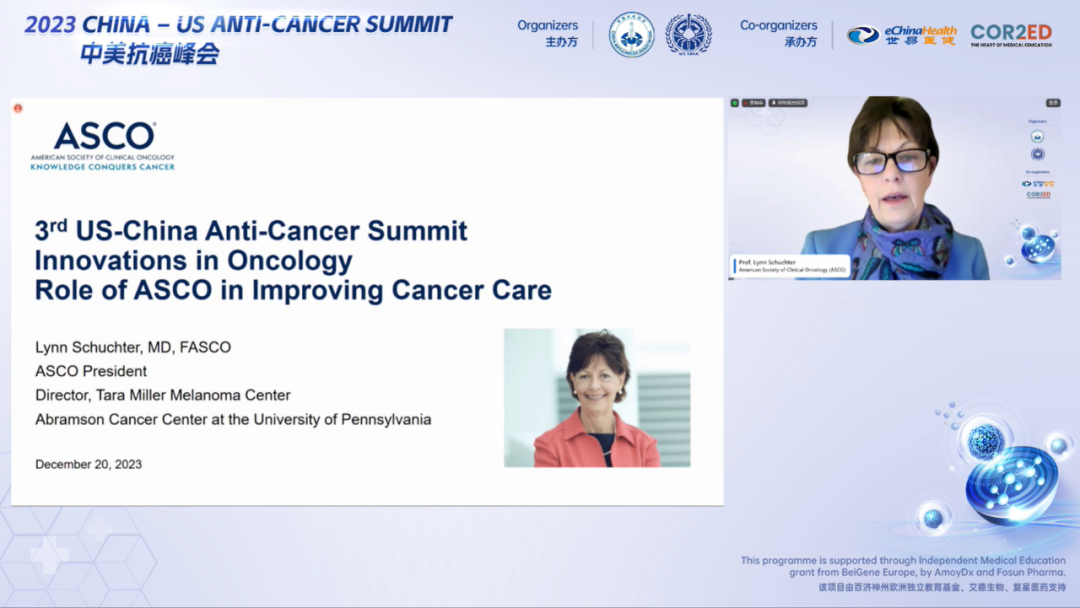
The fourth keynote speech, titled "A Patient-Centric Approach to Cancer Research," was delivered by Prof. William L. Dahut, Chief Scientific Officer of the American Cancer Society (ACS) and Scientific Director for clinical research at the National Cancer Institute's Center for Cancer Research. Prof. Dahut shared significant discoveries and key data in cancer research for 2023, as well as the current status and advancements in cancer prevention and early detection. “Oncology innovation really requires equitable access to clinical trials, so one of the major efforts of ASCO is how can we help people with cancer get greater access to clinical trials so that everyone can benefit.” Prof. Dahut said. He emphasized the importance of government funding as the foundation for long-term progress in cancer research and stressed the need for strategic planning to maximize its impact. His insightful speech resonated deeply with the attendees.
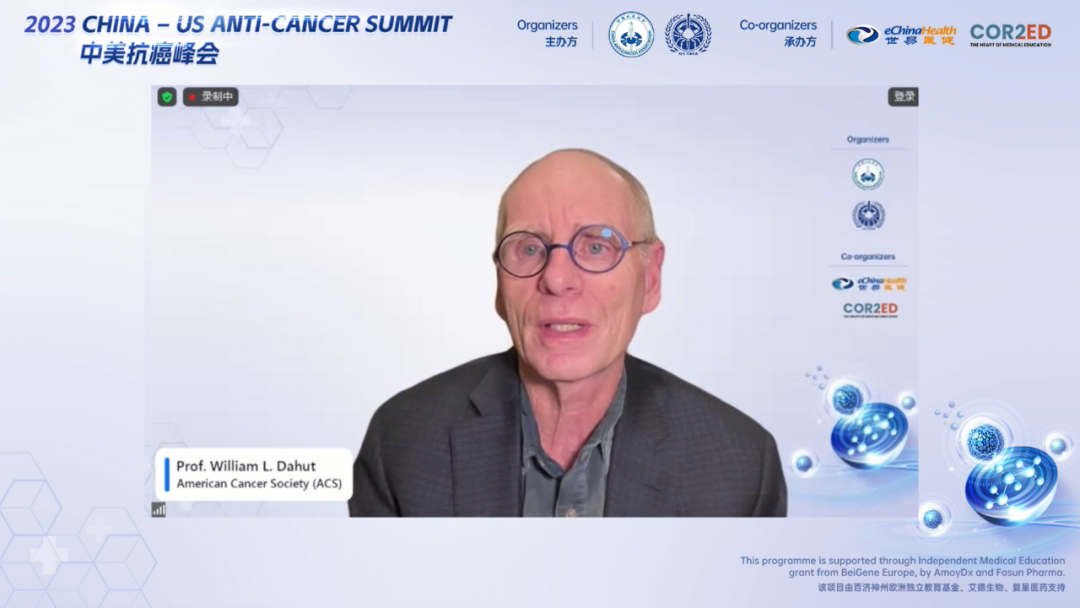
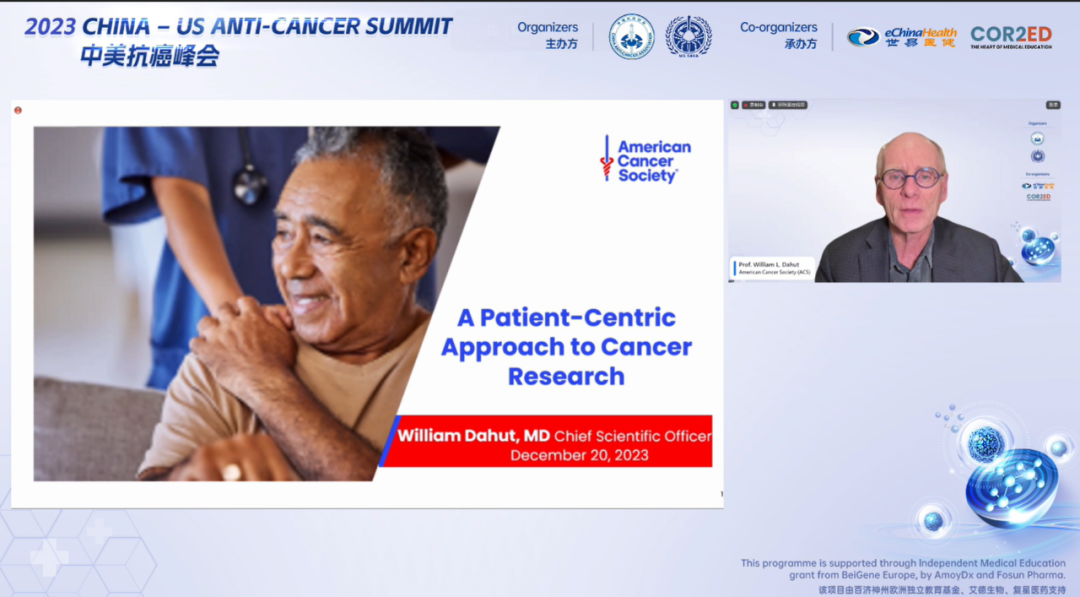
Lastly, Prof. Caicun Zhou, President-Elect of the International Association for the Study of Lung Cancer (IASLC) and Director of the Society of Oncology Drug Clinical Research-CACA, took the podium to discuss "Treatment of Advanced Lung Cancer: Where Are We Now and Where Will We Go?" Prof. Zhou provided a comprehensive overview of the current state of lung cancer treatment, offering invaluable insights into future directions for research and therapies in this field. He introduced the challenges of the late lung cancer and how they overcame these difficulties. He emphasized the potential of precision medicine to improve clinical outcomes for lung cancer patients and recommended molecular testing, such as EGFR and ALK, for Chinese lung cancer patients. He also recommended targeted therapy for non-small cell lung cancer patients who test positive for driver genes.
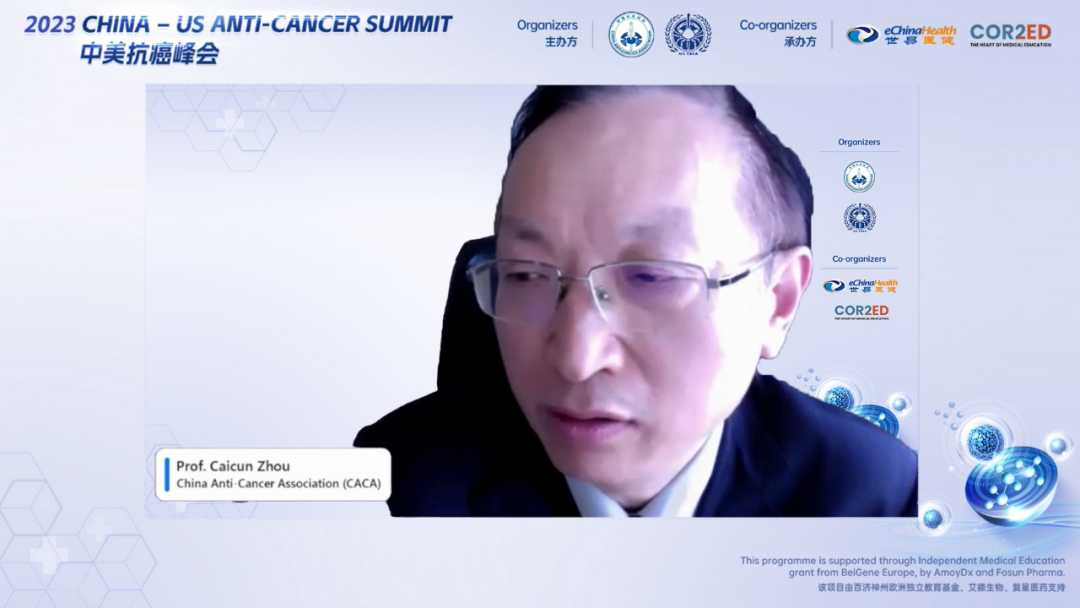
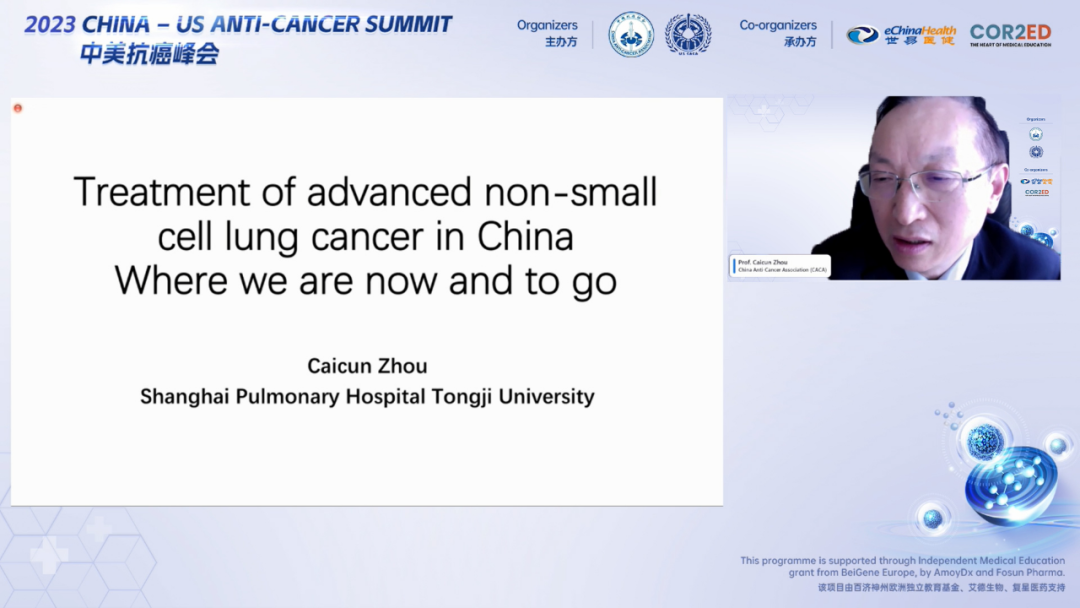
Following the thought-provoking keynote speeches, a panel discussion moderated by Prof. Ruihua Xu, Vice President of CACA and President of Sun Yat-sen University Cancer Center as well as Prof. Li Yan, Managing Director of USCACA, created an engaging platform for experts to exchange ideas and engage in stimulating conversations.
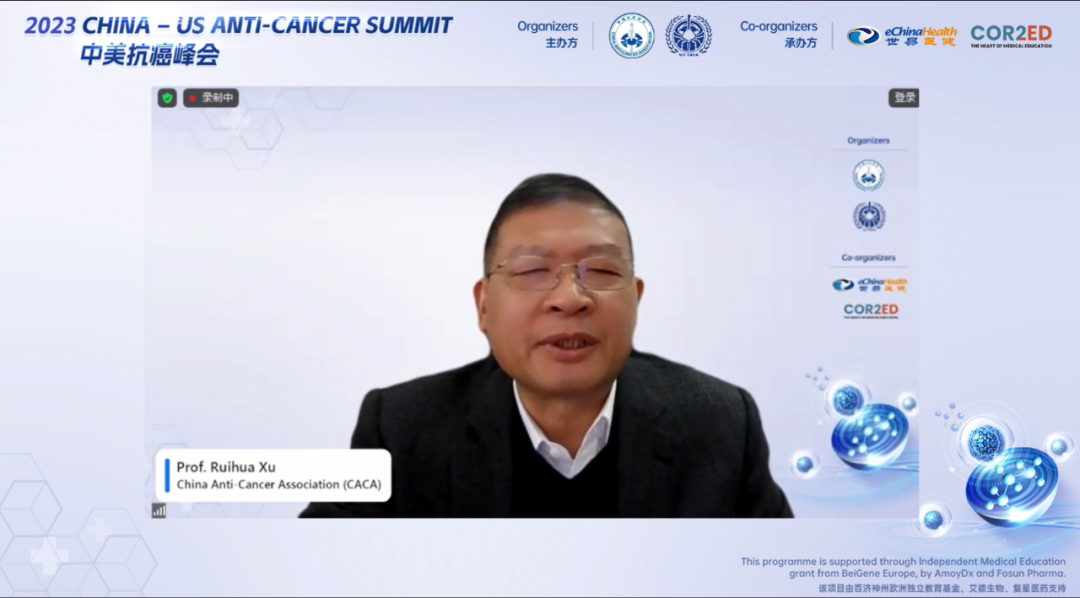
The panelists explored various aspects of precision treatment of tumors, cancer research, integrated diagnosis and treatment, clinical trials, and patient care, resulting in an enriching and dynamic discussion.
The focus was on addressing the main obstacles and resolving issues related to implementing personalized medical plans for lung cancer, colorectal cancer, and melanoma patients globally. The challenges facing clinical trials and the pathways to make local clinical trial data applicable globally and promote global translation were extensively discussed. Prof. Fan and Prof. Wang illuminated that doctors should provide better supportive care for cancer patients, particularly in terms of psychological and nutritional support, to enhance efficacy and improve patients' quality of life. This was identified as an important point in the CACA guidelines.
During the collision of different perspectives, one central question has been asked frequently--“How to collaborate more countries? How to conduct obtaining trials and to make sure the data can go well in different countries?” The Experts engaged in heated discussions on how to promote global sharing of clinical data, identifying it as a crucial factor in accelerating medical research and enhancing the quality of healthcare services for patients worldwide. To answer that question, Prof. Fan said “We join you, and you join us.” He proposed the need to not only collect and update data in a timely manner, but also to integrate and host a better platform that facilitates deep discussion and idea-sharing among doctors, as was done at the 2023CCHIO congress. He emphasized that this is what doctors desire. Therefore, He further announced that next year's Chinese Congress on Holistic Integrative Oncology(2024CCHIO) in Xi'an city welcomes all fellow professionals to participate.
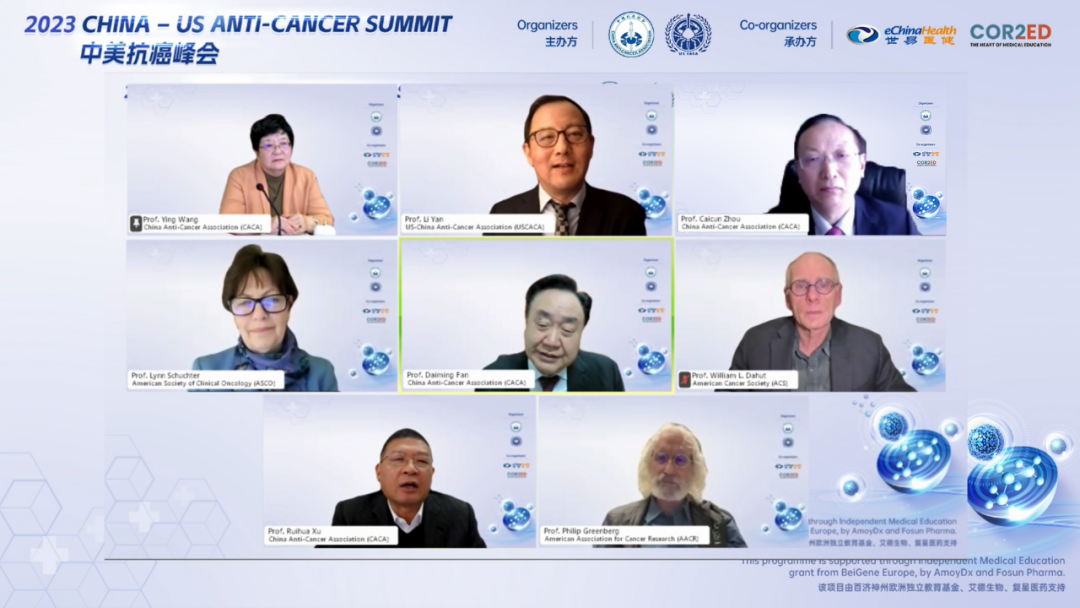
The China-US Anti-Cancer Summit concluded on a resoundingly positive note, leaving all attendees inspired and motivated to persist in their unwavering efforts to combat cancer through international collaboration and groundbreaking innovation.
|